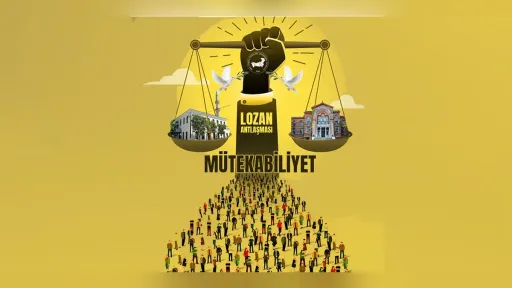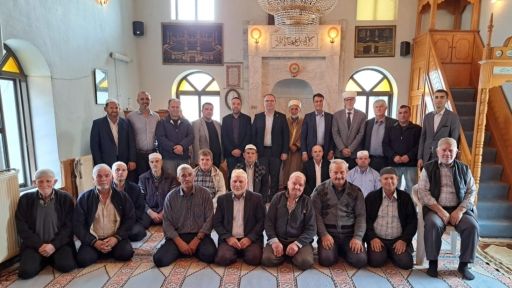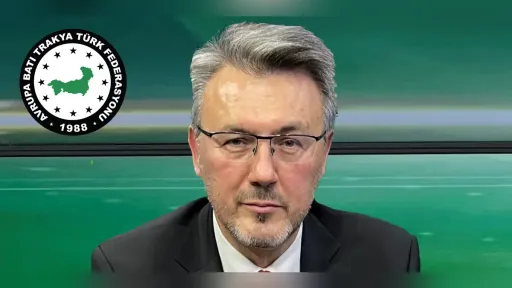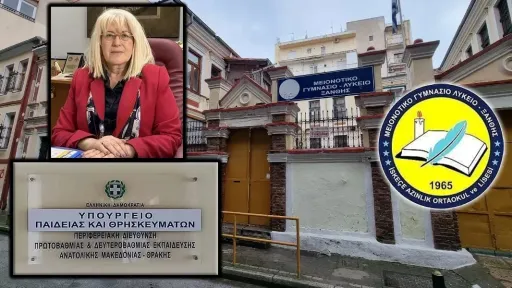Lawsuit by 240 state-appointed imams collapses: Voice of the Turkish Minority cannot be silenced

A €50,000 defamation lawsuit filed against Millet, a newspaper representing the Turkish minority in Western Thrace, has been conclusively rejected after a legal battle lasting four and a half years.
The lawsuit, filed by members of the controversial Association of Muslim Religious Educators—commonly referred to as the “240 Imams” or ierodidaskalos—was deemed inadmissible by the Xanthi Court of First Instance due to procedural violations. An appeal filed by the plaintiffs was also rejected by the Court of Appeals on May 30, 2025, thereby finalizing the decision.
Background: A Critical Article and a €50,000 Lawsuit
The case stemmed from an article published by Millet on August 1, 2020, titled “Back-to-back Blows from the Mitsotakis Government Against the Turkish Minority.” The piece criticized state policies involving the appointment of religious instructors to the Turkish Muslim community—an issue widely seen by minority members as violating the Lausanne Treaty.
The article expressed the newspaper’s concerns over the state-imposed religious figures and their impact on the autonomy of the minority. In response, five appointed imams sued the newspaper for defamation, demanding €10,000 each in moral damages.
Court Ruling: Procedural Violations and Freedom of Expression
The initial ruling by the Xanthi Court of Peace in 2023 determined that the plaintiffs had failed to meet procedural requirements. Greek press law mandates that plaintiffs must first send an individual correction request to the media outlet before pursuing legal action. However, in this case, the plaintiffs issued a collective warning through their association—invalidating their legal claim.
Millet defended the article as a legitimate piece of journalism falling within the bounds of public interest and freedom of expression. The court agreed and dismissed the lawsuit without proceeding to evaluate the content.
The plaintiffs appealed, but the Appeals Court upheld the lower court's decision, further ordering them to pay legal costs and transfer previously deposited court fees to the state.
Legal Team: Journalism Must Be Protected
Attorney Ahmet Kara, representing Millet, commented:
“As we’ve consistently stated, the role of the press is to inform the public and share opinions on public matters. This article reflected the widespread concerns of the Turkish minority regarding the ‘240 Imams’ law. The courts rightfully recognized that the lawsuit lacked legal merit and procedural validity.”
Co-counsel Yannis Barkas added:
“This ruling affirms both press freedom and the journalist’s right to critical expression. The statements in question were not fabrications or distortions but grounded commentary on verifiable facts. Journalists are professionals tasked with uncovering and disseminating the truth—not propagandists nor philosophers.”
Broader Implications: A Victory for Press Freedom
Legal experts view the ruling as a landmark case for minority media in Greece. It reinforces the press’s right to critique state policy—especially in contexts involving ethnic and religious minorities.
The verdict is seen as:
- A legal precedent for similar lawsuits against minority media;
- A recognition of journalism’s function in the public interest;
- A step in line with Greece’s international human rights obligations.
Millet’s Ongoing Struggles
Millet, a longstanding voice for the Turkish minority in Greece, has faced numerous legal and financial pressures over the years—including frozen bank accounts, defamation suits, and threats of imprisonment. Staff have been restricted from property ownership, and the newspaper has endured repeated attempts to silence it through economic means.
However, this ruling delivers a strong message: the suppression of minority media will not go unchallenged.
Final Word: “We Stand With the Truth and the People”
In a statement following the court’s decision, Millet Editor-in-Chief Cengiz [surname withheld] said:
“We remain committed to our mission: to speak truth to power and to serve our community. No lawsuit or intimidation campaign will deter us from defending the rights and dignity of the Turkish minority in Western Thrace.”







